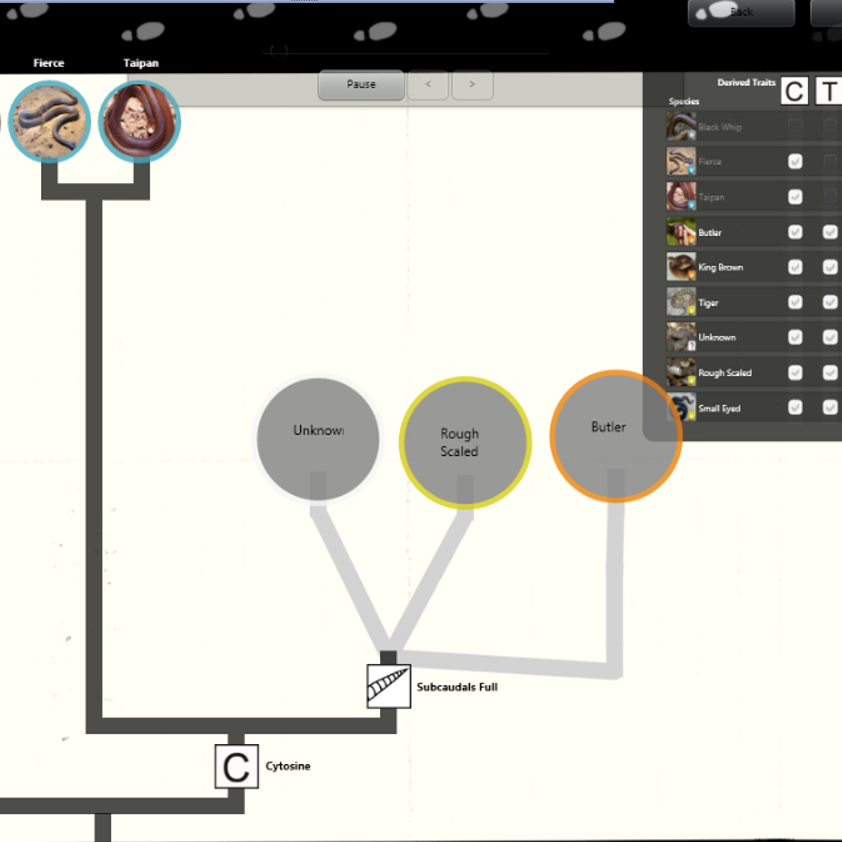Phylogenie

The goal for this project was to create a collaborative learning module that allows students to experience the process of creating and interpreting phylogenetic trees. In discussions with instructors of college-level evolutionary biology, we discovered that the concepts behind tree-building can be difficult to grasp for students, and the ability to correctly interpret the information communicated through trees often does not come naturally. By implementing a collaborative activity that utilizes new ways of interacting with trees and tree-building, we tried to address some of these challenges.
We implemented this computational learning module on the Microsoft Surface platform. This allowed us to explore the use of interaction techniques that would not be possible with a traditional pen-and-paper exercise. Students can physically order and arrange character traits and explore different arrangements and representations for the taxa, transitioning from one visualization to another with ease. The following video shows the different steps of our learning scenario:
The Phylo-Genie environment presents users with a scenario that motivates the learning activity. Participants ’travel’ to Australia as researchers to assist in data collection and analysis. The trip is executed as a series of nine stages. During the trip, a user is bitten by a venomous snake. The users then have to choose between 4 equidistant hospitals; each hospital has only one type of anti-venom. They have time to reach only one hospital before the venom irreversibly affects the bitten user. Since the species of the snake is unknown, participants must learn tree-building techniques to assess the common ancestry of the Australian snakes. Closely related snakes share the same venom (and thus anti-venom). Successful tree construction and interpretation allows users to select a treatment. This scenario, anchored in a real life setting, provides participants with motivation for learning phylogenetics.
Publications
- Schneider, B., Strait, M., Muller, L., Elfenbein, S., Shaer, O., Shen, C. (2012). Phylo-Genie: Engaging Students in Collaborative ‘Tree- Thinking’ through Tabletop Techniques. In Proc. ACM Conference on Human Factors in Computing Systems (CHI’12), ACM Press.